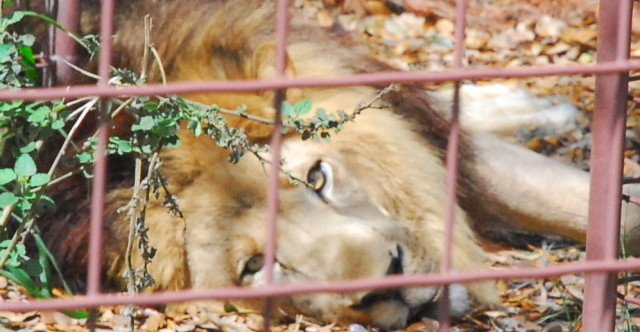Yesterday was World Lion Day, with a special focus on the problem of trophy hunting. We all know, by now, what happened to Cecil the lion, who lived in a refuge in Zimbabwe. An American dentist shot and killed Cecil to bring him home as a trophy. Trophy hunting lions has ripple effects across an entire pride, and across the environment. Lions, and animals in general, are not trophies, and it’s high time for the world to wake up.
The effects of trophy hunting lions aren’t limited to the ones that are hunted
Lion populations are shrinking worldwide, and while there are several causes, one of them is, in fact, trophy hunting. National Geographic says that 600 lions fall to trophy hunting every year, and nearly two-thirds of that is at the hands of wealthy Americans. This is absolutely sick.
That’s not the total number of lions that die each year due to trophy hunting, though. Trophy hunting lions, particularly the prized male lions, destabilizes the pride, and often results in the death of an entire generation of lion cubs. So the number of lions killed because of trophy hunting is well into the thousands, possibly the tens of thousands, each year.
We’re already seeing this, as the New York Post reports that another male lion has killed one of Cecil’s eight cubs. Cecil’s brother, Jericho, has been protecting the cubs, but unless he can successfully take over the pride, he can’t protect them forever. Those cubs will very likely die if another male takes over the pride.
Trophy hunting lions, or other animals, does not bring much money into poor communities
People like to claim that trophy hunting lions, and other animals, brings millions of dollars into poor communities, but that is an empty claim. It’s so untrue that even a pro-hunting group, known as the International Council for Game and Wildlife, says that only three percent of the revenue from trophy hunting actually goes into communities. The rest goes to governments, or foreign outfitters.
Regardless, that is a very poor justification for continuing to destabilize ecosystems just for some bragging rights. Far, far more money pours into Africa from tourists who come just to watch the wildlife, according to the National Geographic piece.
One focus of World Lion Day
World Lion Day efforts in Africa focus on the need for humans to learn to coexist with these majestic creatures, in addition to ending trophy hunting. Trophy hunting lions isn’t the only problem they face. People often hunt down and kill lions that kill their livestock, or kill other people. This phenomenon isn’t limited to African lions, or the continent of Africa, either. Here in the U.S., it has long been common practice to kill a predator that kills livestock. This is one reason why lifting Illinois’ bobcat hunting ban was such a bad idea.
It’s long past time to stop trophy hunting lions, and to end this barbaric practice altogether. Animals are not trophies, and they’re not bragging rights. They’re a vital part of the planet, and a vital part of our own existence.


